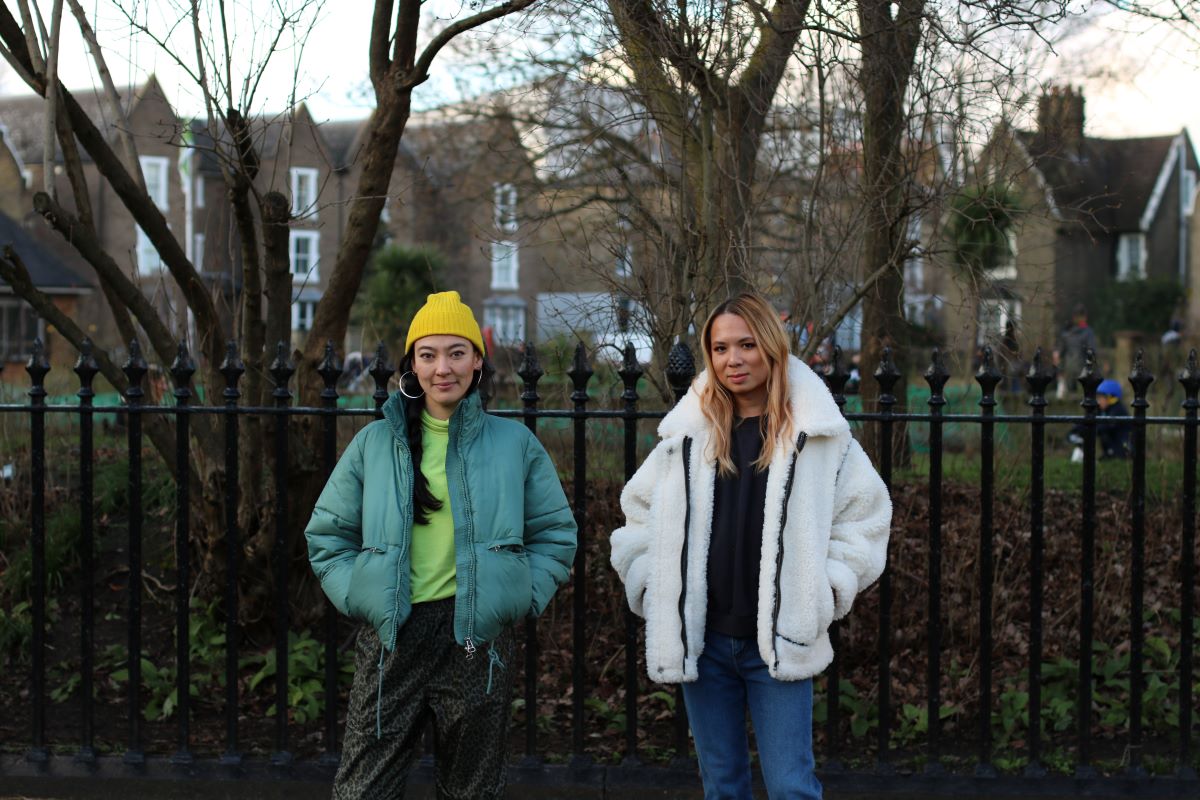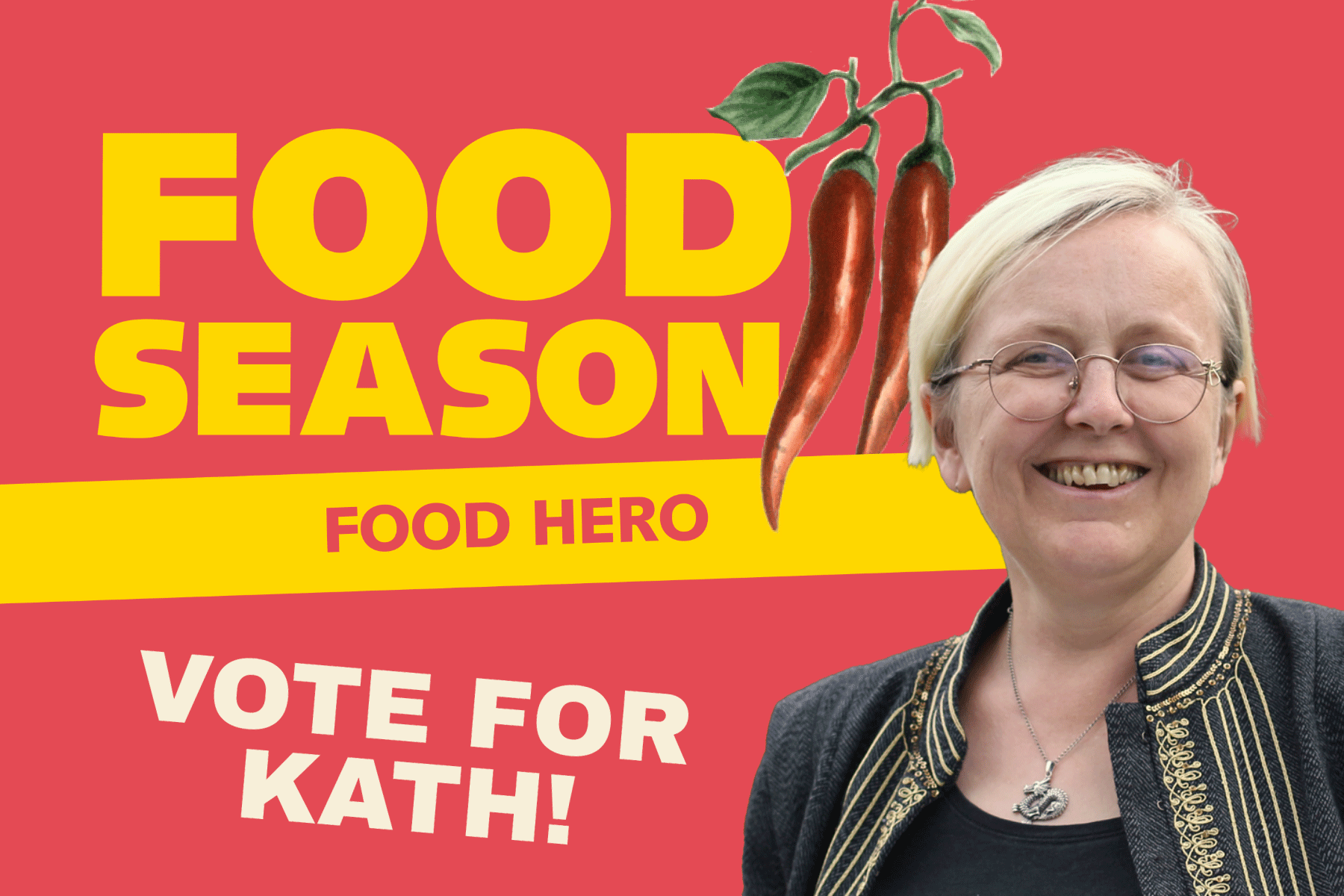
The food activists tackling racism through recipes
Amy Luck interviews the inspirational duo behind the anti-racism recipe book,about the power of food as a tool for activism.
Claire Sachiko Fourel and Lex Shu Chan are lawyers by day, supperclub and music event organisers by night, and have recently added cookbook authors to their CVs.
Earlier this year, the Asian-Londoner duo recently published ‘Recipes Against Racism’ a new downloadable cookbook featuring recipes from London’s leading Asian and Asian-influenced restaurants and designed to create a new genre of activist recipe books. We hear about their journey in setting up the book, how they took inspiration from London and their favourite spots in the city to eat.
What was your inspiration for setting up Recipes Against Racism?
Both being Asian minorities, we have experienced racism and microaggressions over the years and have been alarmed at the rise in anti-Asian hate crime since the start of the pandemic. The global awakening of consciousness of the systemic racial injustices faced by our Black siblings has also highlighted that there is much more to be done in the coming years and beyond in order to ensure that anti-racism is firmly entrenched in society. We both work on social justice and diversity and inclusion issues in our day jobs as lawyers and wanted to use our skills to highlight the racial injustices which have been perpetrated against our communities, while bringing people together through our love of food, creating communities and positive shared experiences.
The pandemic obviously inhibited our ability to organise physical events, so we had to think of a new way to connect. Many of us have eaten alone, or with the same person, for the best part of a year, so we thought this project was an alternative way to enable us to break bread together by cooking the same recipes and connecting virtually. When the participating restaurants and chefs responded so enthusiastically to our call to action, it concretised our belief that many people wanted to contribute to the anti-racism global movement by uniting through food.
Who inspired you along the way?
We've both been incredibly inspired by our grandparents in terms of food. It might sound like a truism, but there's nothing quite like grandma's cooking to remind you of home and conjure up childhood nostalgic memories. In terms of people from the food industry, we've been inspired by so many writers who are able to seamlessly combine a cookbook with an opportunity for learning and reflection that goes beyond food as just purely sustenance. What is clear from all cultures is that it also plays into our national and individual psyches, and takes on a significance that transcends just being about mere calorific intake. Some of our favourite authors include Fuschia Dunlop, whose knowledge of and respect for Chinese cuisine runs deep, and who always provides nuanced reflections on culinary traditions and their evolution; Samin Nosrat who presents cooking not as an esoteric discipline which must be perfected, but more as a means of connection and experimentation; or Yotam Ottolenghi and Sami Tamimi, who are able to weave culinary, political and historical complexities of a region to the fore amongst their recipes.
How did you get into the food sector?
We met in law school in 2006 and bonded over our choice of obscure choccie bars whenever we found ourselves at an off licence. This then catalysed a series of conversations which made us realise our mutual love of food and what it meant to our cultural identities. As the years went on, we started to organise events such as supperclubs. Our aim was always to create inclusive experiences based on community and collectivism. The idea is that everyone is welcome — friends, friends of friends, friends-of-colleagues-of-friends, whoever — but it’s not just about showing up. We focused on creative collaborations as a way of creating experiences, so that everyone can contribute to, take pride in, and most importantly, enjoy the output.
What advice would you give to others looking to set up their own campaign?
A love of food can mean so much to different people – from an obsession of produce or the provenance of ingredients to the cultural meaning or the history behind a particular dish. Identify where your particular obsession lies, go deep and tell that story which will be unique to you! In terms of setting up a campaign, identify a particular issue where you can bring people together to move the needle, and never underestimate the power of the collective to generate conversations, and the beauty of creative partnerships to create magic. We're all stronger together!
What challenges do we still need to tackle in the food sector?
Many barriers exist from supply chain ethics and transparency, such as worker conditions to allegations of modern-day slavery, sustainability, food poverty and waste, right up to restaurant staff working conditions and representation.
From the Recipes Against Racism perspective, we can speak more to the issue of representation. We have seen a lot of conversations around cultural appropriation in the food scene, which we think are valid and important. We have seen some notable instances where Asian cuisine or culture has not only been appropriated without due credit, but also presented in inaccurate, disrespectful or outright racist ways, and this has not just limited to the food itself, but also in a recent example, restaurant theme – from the décor to the marketing. It's important for conversations to continue around all these issues, and for all segments of the food sector to continue educating ourselves around origins of a dish, specificity of ingredients, and sense-checking that we're not engaging in orientalist tropes or accidentally denigrating a particular culture.
What can others in the sustainable food scene do to support under-represented groups?
It depends who the under-represented groups are within the sustainable food scene, and how these groups can firstly access the sector. How do these groups find out and get passionate about the sustainable food scene – does it start as early as speaking in schools for example? Does an organisation have a diverse work force, and where and how are individuals being recruited? Is diversity and inclusion mainstreamed and embedded within the culture of the organisation to ensure that all under-represented groups who are either internal or external stakeholders are not marginalised or excluded, and therefore continue staying involved in the sector?
This is where practising active allyship is super important for those in the sector who are in positions to support under-represented groups. In order to show up as an ally, there needs to be some self-reflection and education, as being an ally requires being willing to value justice over discomfort. Understanding first and foremost why it is important to be an ally and being personally committed helps to keep allyship front of mind. It is also important to notice inequity, and the best way to do so is to reach out to learn and hear first person experiences from under-represented groups such that one can take action and amplify the conversation.
What do you love about London’s food scene?
We love how diverse, high-lo and multi-cultural the London food scene is. In terms of vibe and experience you can find everything ranging from family run neighbourhood restaurants, street food, hole in the walls, delis, markets, to high end dining. If produce is your thing, you can saunter down to Borough market to grab some Delica pumpkin or Bethnal Green to pick up in-season mangoes. You can never ever get bored, and you will likely never ever get round to trying the plethora of options on your doorstep. That's what makes it brilliant.
And finally, where are your favourite places to eat?
Some of our favourites include P Franco for natural wine, The Duke of Cambridge for seasonal vegetables, Bermondsey Larder for British produce, Dim Sum & Duck for scrumptious dim sum and of course, our Recipes Against Racism contributors – Lucky & Joy, Kiln and Sollip.
Get your copy of this fantastic cookbook.
Learn about the women changing the face of farming
London Food Link: London Food Link brings together community food enterprises and projects that are working to make good food accessible to everyone in London to help create a healthy, sustainable and ethical food system for all.
Sustain
The Green House
244-254 Cambridge Heath Road
London E2 9DA
020 3559 6777
sustain@sustainweb.org
Sustain advocates food and agriculture policies and practices that enhance the health and welfare of people and animals, improve the working and living environment, promote equity and enrich society and culture.
© Sustain 2025
Registered charity (no. 1018643)
Data privacy & cookies
Icons by Icons8
